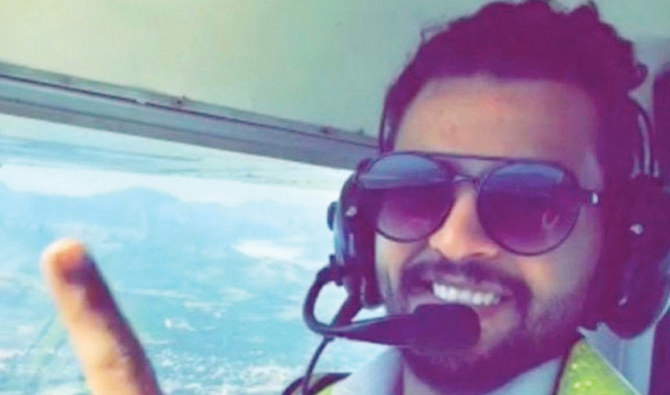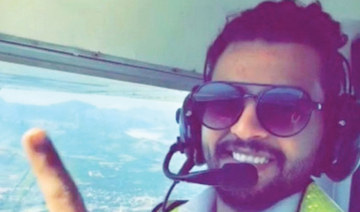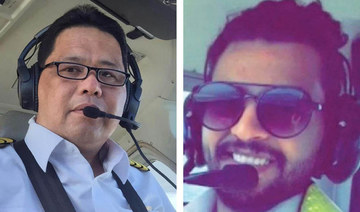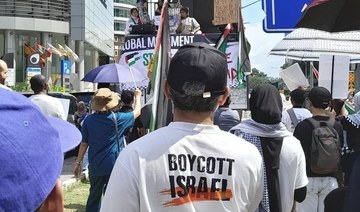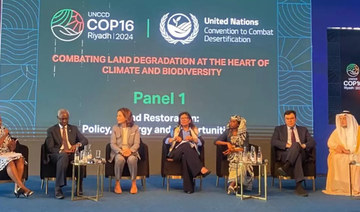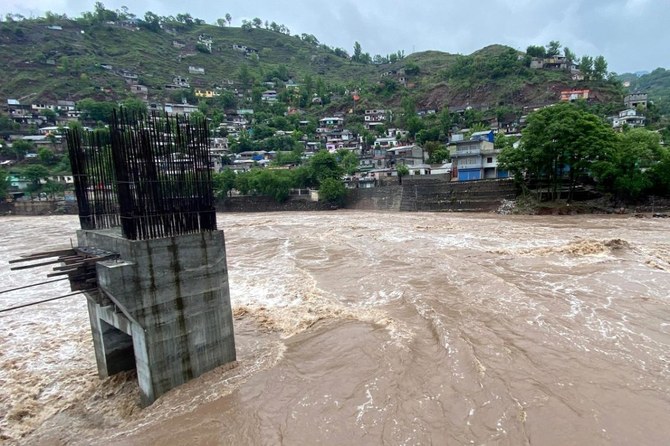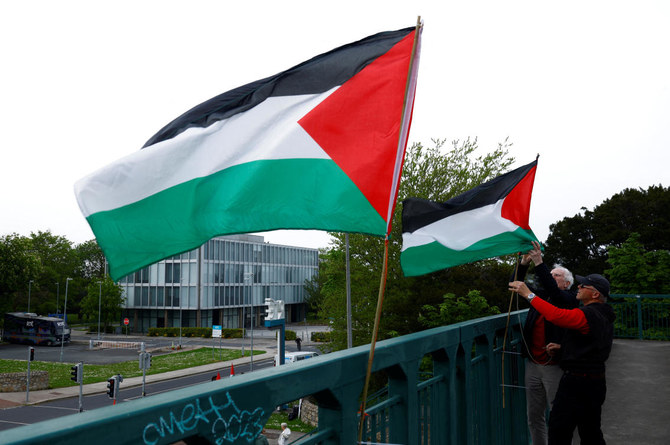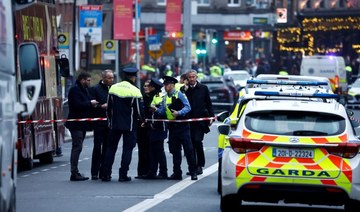MANILA: The Beechcraft Baron 55 disappeared ten minutes after it took off on May 17 from San Jose Airport in the central Philippine island of Mindoro.
The Civil Aviation Authority of the Philippines (CAAP) said that the last known position of RP-C9078, the tail number by which the plane has come to be popularly identified, was just 16 nautical miles south of the airport over the deep waters of the Mindoro Strait, after which radar contact was lost.
Since then, no pieces of the wreckage of the training plane have been found; nor have any remains of the two people on board, Abdullah Khalid Al-Sharif, a 23-year-old Saudi student at the Orient Flying School, and his Filipino instructor, Captain Jose Nelson Yapparcon.
An investigation into the mystery has spanned three months and involved the Philippines Coast Guard, Navy and Air Force scouring the seas, army troopers and policemen combing rugged offshore islands and the Saudi embassy in Manila providing logistical and liaison support. Sophisticated sonar equipment has been deployed to scan thousands of hectares of the seabed and conducted aerial and sea searches in Occidental Mindoro and its neighboring provinces. Information networks for the public to report possible sightings of the plane or the pilots were established in 11 villages near and around San Jose Airport.
But to date, there are no definitive answers. A black bag confirmed to be owned by Yapparcon and containing his wallet, credit cards, pilot’s license and other sundry items was caught on the nylon rope of a seaweed plantation, found by fishermen and turned over to authorities. Other than that, there is little certainty about the whereabouts of the plane and its doomed passengers and their fate has become one of the most vexing aviation disappearances in the history of the Philippines.
“As of now … pending new information on the location and anything that would point out where the aircraft was or the pilots ... we (have) toned down the search and rescue operation, short of suspending,” Col. Jose Mendoza, the chief of security at CAAP’s Security and Intelligence Service, told Arab News in an interview. He declined to specify if the search had been entirely called off.
Most leads, indeed, have gone dry and the mystery of the missing plane has given rise to speculation and conspiracy theories. Also confusing for many pilots is how a plane manned by a veteran such as 50-year-old Yapparcon, whom many of his colleagues described as “one of the best pilots” of the twin-engine Beechcraft Baron 55, could disappear without a trace.
The mystery is deepened by claims by Al-Sharif’s family that they were able to contact his mobile phone one week after he went missing. In a recording of a phone conversation in the possession of authorities in the Philippines and Saudi Arabia and heard by Arab News, a person picks up the phone and Al-Sharif’s mother is heard saying in Arabic, “Where is Abdullah, where is Abdullah,” before the line drops.
In an official report written in English and translated in Arabic, and seen by Arab News, the report said that the telecommunication company Globe records shows no incoming or outgoing calls from Al-Sharif’s cell phone since the morning of May 17.
A police report on the disappearance of RP-C9078 obtained by Arab News identified the owner of the missing trainer aircraft as “Racel Kara Cadingan.”
A retired general with knowledge of the case said “it is common knowledge who owns” the academy, and that is Captain Romel Cadingan, father of Racel Kara. However, the civil aviation authority spokesman, Eric Apolonio, denied that Captain Romel is currently the owner of the school. “The captain had been the owner and operator of the school in the past,” he said.
Capt. Cadingan holds the rank of deputy director II at the CAAP. He previously served as chief of the CAAP Flight Standards Inspectorate Service (FSIS), but was recently reassigned to the CAAP Office of the Deputy Director for Administration for Special Projects to oversee the construction of a new domestic airport in Sangley Point, Cavite.
Apolonio said that Cadingan was moved to Sangley because “his expertise was needed there.” He also confirmed that Cadingan’s reassignment to Cavite came after his name began to be dragged into the case of the missing plane.
Arab News tried to reach Capt. Cadingan, as well as officials of the flying school, for comment but had not received any response at the time of writing.
Using a freedom of information law, Arab News requested from CAAP a copy of the investigation report on the disappearance of RP-C9078, as well as other documents that could conclusively detail the history and profile of the flying school and the missing plane. CAAP denied the request, saying that the information could not be shared until the aircraft accident and inquiry board finished its work.
The Saudi embassy in Manila also declined to comment on the status of the investigation, saying only that it was very much in touch with both the missing Saudi pilot’s family and authorities in Manila.
“The embassy will (put) serious efforts toward this issue (the Saudi missing pilot issue), and it prays to Allah that all the search efforts would yield the return of the missing citizen Abdullah Al-Sharif safe and sound to his family,” a statement by the embassy of Saudi Arabia in Manila issued on July 30, 2019 said.
A police report seen by Arab News showed that the missing plane had been involved in a previous accident in Palawan province in July 2015 while delivering fish. Though the pilot of the 2015 crash did not sustain injuries, “the aircraft incurred an undetermined amount of damages,” the police report said, adding that the crash was caused by the “mechanical failure of nose wheel.”
Apolonio, in an earlier interview with Arab News, confirmed the 2015 incident involving RP-C9078. He added the plane was later acquired by the Orient Aviation Flying School. The spokesman stressed that despite the previous accident, RP-C9078 “passed all safety procedures” to be used as a trainer aircraft.
“We have safety procedures and a checklist and it (aircraft) passed all these. It has been used as a trainer aircraft for years now,” he said.
Army Brig. Gen. Marceliano Teofilo, commander of the Army 203rd Brigade that led the land search for RP-C9078, said that the investigators’ inability to find wreckage had given rise to suspicions and conspiracy theories around the missing plane.
“It is really very unusual that an aircraft would just disappear,” the commander said. “There was no wreckage of the plane, except for the bag of the Filipino pilot that was retrieved; that’s why there are speculations.”
For Al-Sharif’s family, especially his father, uncle and younger brother who have been in the Philippines since the plane went missing, the only hope is to find out what happened to him.
“He was supposed to graduate in two months before what happened to him,” his brother Abdul Majeed told Arab News. “I will not go back to Saudi Arabia until and unless I see my brother alive in front of my eyes.”



